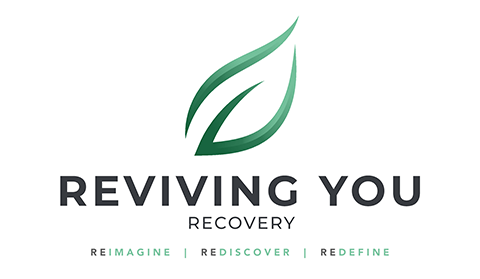How Can I Go Into Drug Rehab and Keep My Job?

Making the decision to enter drug rehab is one of the most important steps you can take toward reclaiming your life, health, and future. But if you’re employed, the idea of stepping away from your job to seek treatment can be daunting. You may worry about losing income, damaging your professional reputation, or even being fired. The good news is: you have rights, and you can go into drug rehab while keeping your job.
At Reviving You Recovery, we understand that your career is an important part of your identity and stability. That’s why we’re here to help you explore your options, understand your legal protections, and find a treatment plan that works for your life — including your job.
Why Going to Rehab Is Worth It
Before diving into the logistics, it’s important to recognize that untreated substance abuse rarely improves on its own. In fact, addiction typically worsens over time and can eventually lead to job loss, financial instability, damaged relationships, and severe health consequences.
Seeking professional treatment isn’t a sign of weakness — it’s a sign of strength, self-awareness, and commitment to growth. Taking time off to get clean and learn new coping strategies is an investment in your personal and professional future.
Do I Have to Tell My Employer About Rehab?
This is one of the most common questions we hear. And the answer is: not necessarily.
Whether or not you disclose your need for treatment depends on your workplace situation and what kind of time off you’re requesting. If you want to keep things confidential, you can often request a leave of absence through Human Resources or your supervisor without going into the specifics of your condition. You can simply state that you’re dealing with a medical issue that requires time off.
However, if your performance has already been affected by your substance use, or if you’ve been confronted about it at work, it may be better to be honest about what’s going on — especially if you’re hoping to maintain your position long-term. Many employers appreciate honesty, and being upfront may help build trust.
What Are My Legal Rights?
There are federal laws that protect your job while you seek addiction treatment:
1. The Family and Medical Leave Act (FMLA)
FMLA is a federal law that allows eligible employees to take up to 12 weeks of unpaid leave per year for serious health conditions — including substance use disorders — without losing their job.
To qualify:
- You must have worked for your employer for at least 12 months.
- Your workplace must have at least 50 employees within a 75-mile radius.
- You must provide sufficient notice and medical documentation.
FMLA protects your job while you’re away and ensures that you can return to the same or an equivalent position after your treatment.
2. The Americans with Disabilities Act (ADA)
The ADA protects individuals with disabilities, including those in recovery from substance use disorders. While current drug use may not be protected, individuals who are seeking treatment or are in recovery may be protected under ADA regulations.
This means your employer can’t legally fire you for going to rehab — especially if you’re seeking help voluntarily and haven’t violated company policies due to substance use on the job.
3. State-Specific Laws
Some states have their own additional protections for employees who need time off for addiction treatment. These laws may offer more generous leave policies or extended protections beyond what FMLA and ADA provide. Our team at Reviving You Recovery can help you explore the laws specific to your state and situation.
Will My Employer Find Out If I Use Insurance?
If you use health insurance to pay for treatment, your employer typically won’t see any specific medical details. While your insurance company may process claims and authorize treatment, your employer doesn’t have access to your private health records unless you give permission.
Thanks to the Health Insurance Portability and Accountability Act (HIPAA), your medical information is strictly confidential. If you’re worried about privacy, you can also speak directly with your treatment provider and insurance company about how your information will be handled.
Get Your Questions Answered Now
What If My Job Doesn’t Offer Benefits or Leave?
If you work part-time, are self-employed, or your employer doesn’t offer FMLA or paid time off, you still have options. These might include:
- Short-Term Disability: Some insurance plans or employers offer short-term disability benefits, which can help cover lost wages while you’re in treatment.
- Employee Assistance Programs (EAPs): Many companies offer EAPs that provide free or low-cost counseling, referrals, and support for addiction treatment.
- Outpatient Rehab: If leaving work completely isn’t possible, consider an intensive outpatient program (IOP) or evening outpatient rehab. These allow you to attend treatment sessions before or after work, offering flexibility without compromising your recovery.
At Reviving You Recovery, we offer both inpatient and outpatient services, so you can choose the path that best fits your life and responsibilities.

Should I Do Outpatient or Inpatient Rehab?
This decision depends on the severity of your addiction, your living environment, and how much time you can realistically take off from work. Here’s a quick breakdown:
Inpatient (Residential) Rehab
- Ideal for moderate to severe addiction
- Requires full-time commitment
- More privacy and distance from stressors
Outpatient Rehab
- Flexible scheduling
- Continue living at home and working
- Suitable for milder addiction or for continuing care after inpatient
- May include evening or weekend sessions
If your job prevents you from taking extended time off, outpatient care may be the best option — and it still offers professional counseling, peer support, and evidence-based treatment. At Reviving You Recovery, our outpatient programs are tailored to support clients who want to maintain their work and family obligations while healing.
Tips for Balancing Work and Rehab
Here are some practical ways to protect your job while prioritizing your health:
1. Be Proactive
Don’t wait for a crisis to make the decision. If you sense your substance use is starting to impact your performance, relationships, or mental health, take steps to address it before things spiral out of control.
2. Know Your Rights
Take time to understand FMLA, ADA, and any applicable state laws. You don’t need to share all the details with your employer, but you should be informed and prepared to advocate for yourself.
3. Communicate with HR
If you’re comfortable, speak to your Human Resources department about your options. HR is there to support you and ensure the company complies with legal requirements.
4. Create a Transition Plan
Work with your supervisor or team to create a transition plan while you’re away. Delegating tasks or helping onboard a temporary replacement can show that you care about your role and want to ensure continuity.
5. Keep It Confidential If You Want
You don’t have to tell coworkers or managers everything. You can simply say you’re taking a medical leave. Your personal health is your business.
6. Focus on Recovery
Once you start treatment, give it your full attention. The more committed you are to healing, the better you’ll feel when you return to work — more focused, motivated, and capable.

What Happens After I Complete Rehab?
Once you’ve finished detox and rehab, you may return to work with a new perspective, improved health, and stronger coping skills. Many people find they perform better and experience fewer workplace issues after recovery.
At Reviving You Recovery, we also provide aftercare planning, including:
- Ongoing outpatient counseling
- Relapse prevention education
- Peer support groups
- Career and life coaching
Our goal is to support you long after your initial treatment ends — including helping you navigate your return to the workplace with confidence and support.
You’re Not Alone — And You Don’t Have to Choose Between Work and Recovery
Trying to juggle addiction and a job is a heavy burden — but you don’t have to do it alone. At Reviving You Recovery, we help people from all walks of life enter detox and treatment without sacrificing their careers or financial security.
Whether you need full-time residential care or a flexible outpatient plan, we’ll work with you to create a treatment schedule that protects both your health and your professional goals.
Ready to Start Your Recovery?
If you’re wondering how to go into drug rehab and keep your job, the first step is reaching out. Reviving You Recovery is here to support you with compassion, discretion, and proven treatment strategies.
Call us today or fill out our confidential form to learn more about how we can help you heal — while keeping your career intact.
We Accept Most Insurances
We are in network with:









We know insurance coverage can be a source of uncertainty for people. We make sure you have all the information necessary. The great news is health insurance can potentially cover the total treatment costs. If you don't have insurance, we offer cash payment options for our treatment programs and are committed to working with clients regardless of financial situations.
